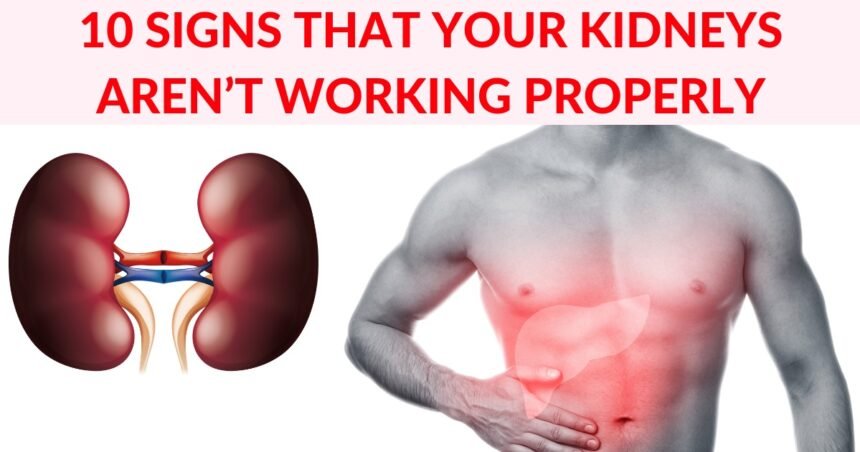The kidneys are vital bean-shaped organs in our bodies. They are part of the urinary system and play a crucial role in filtering waste products like urea from the blood. Once the kidneys have filtered out the waste, it is excreted along with water as urine.
Understanding the Kidneys

Humans have two kidneys, located in the posterior part of the abdomen. One kidney is on each side of the spine, just below the liver. Each kidney is accompanied by an adrenal gland, also known as a suprarenal gland. The kidneys are situated behind the lining of the abdominal cavity, roughly corresponding to the T12 to L3 vertebral levels.
To accommodate the liver, the right kidney usually lies slightly lower than the left. An average adult kidney is about 11.5 cm in length, 4.5 cm in depth, and can weigh up to 160 grams. The kidney’s concave side, called the hilus, allows entry of the renal artery, renal vein, nerves, and ureter.
Kidneys are responsible for filtering waste from the bloodstream. When they fail, waste accumulates in the body, leading to infections and diseases. Common kidney disorders include kidney stones, chronic kidney disease, and even kidney cancer. In severe cases, kidney failure may occur, requiring treatments like dialysis or transplantation.
According to global surveys, over 10.5 million people worldwide need kidney transplants or dialysis. Unfortunately, due to limited resources, many do not receive timely treatment, resulting in preventable deaths.
Fortunately, the body sends early warning signs when kidneys are under stress. Recognizing these signs can save lives. Here are 10+ important signals that indicate your kidneys might not be functioning properly.
1. Sleep Problems and Fatigue
Kidney issues often cause sleep disturbances. People with serious kidney problems may experience pauses in breathing during sleep, leading to excessive snoring. Additionally, chronic fatigue is common because poor kidney function can lead to anemia, reducing oxygen supply to tissues.
2. Severe Headaches and Weakness
Anemia caused by kidney malfunction can trigger persistent headaches, dizziness, and extreme tiredness, even after adequate rest. If you frequently feel exhausted without reason, consult a doctor.
3. Bad Breath and Metallic Taste
A metallic taste in the mouth, often accompanied by bad breath, can indicate a contaminated bloodstream. Severe weight loss along with this symptom is a red flag for kidney issues and should not be ignored.
4. Dry, Itchy Skin
Healthy kidneys remove toxins and help maintain proper red blood cell levels. Dry, itchy skin can be a sign of kidney-related anemia or toxin buildup in the body.
5. Shortness of Breath
Difficulty breathing can stem from various causes, including lung or heart problems. However, kidney dysfunction can also reduce oxygen-carrying capacity, causing breathlessness even with minimal exertion.
6. Swelling in Ankles, Feet, and Hands
Malfunctioning kidneys fail to remove excess fluid and sodium from the body. This results in swelling, particularly in the ankles, feet, and hands.
7. Persistent Back Pain
While back pain can result from multiple causes, pain accompanied by urinary issues, vomiting, or fever is often linked to kidney problems.
8. Puffy Eyes
Puffiness around the eyes is a common indicator of protein loss in the urine, a sign of kidney dysfunction. Immediate medical consultation is recommended if this symptom appears.
9. High Blood Pressure
Maintaining healthy blood pressure is critical for kidney function. Poorly managed hypertension can damage kidney blood vessels, while folic acid-rich foods can help maintain healthy red blood cells and prevent anemia.
10. Changes in Urination
Noticeable changes in urination—such as increased frequency, blood in the urine, foamy urine, or strong odor—can be key indicators of kidney issues.
11. Nausea and Vomiting
Kidney failure can lead to a buildup of waste products in the body, causing nausea, vomiting, and loss of appetite. Persistent digestive issues without clear reasons may be related to kidney health.
12. Difficulty Concentrating
Toxin buildup from impaired kidney function can affect brain function, leading to difficulty concentrating, confusion, or memory problems.
How to Keep Your Kidneys Healthy
- Stay Hydrated: Drink sufficient water to help kidneys filter toxins.
- Eat a Balanced Diet: Limit processed foods, salt, and sugar. Include kidney-friendly foods like berries, leafy greens, and whole grains.
- Exercise Regularly: Physical activity improves circulation and kidney health.
- Monitor Blood Pressure: Regularly check your blood pressure to reduce kidney strain.
- Avoid Smoking and Excess Alcohol: Both can damage kidney tissues over time.
- Regular Check-Ups: Routine blood and urine tests can detect early kidney issues.

